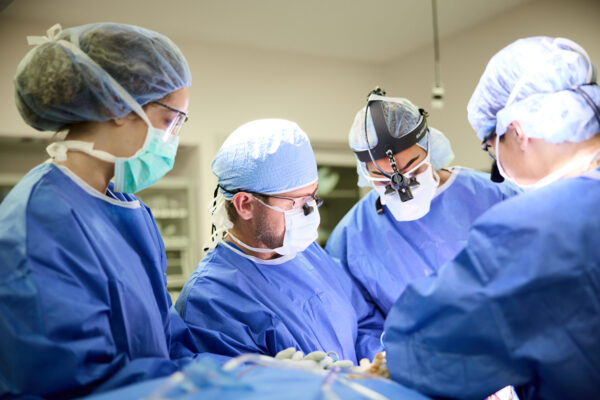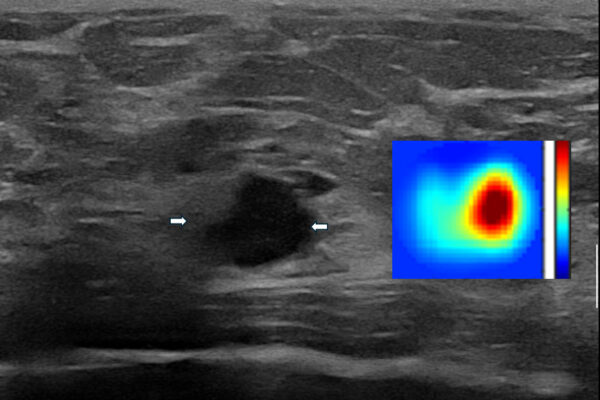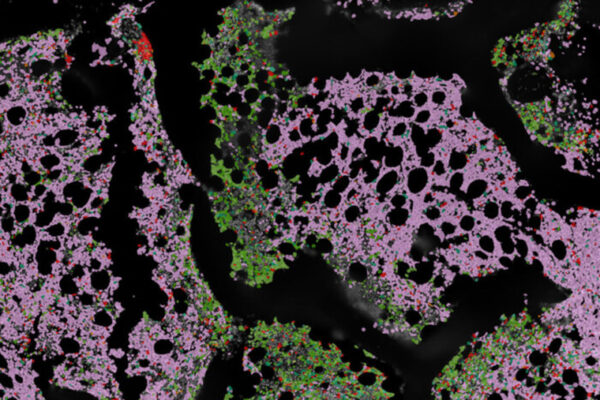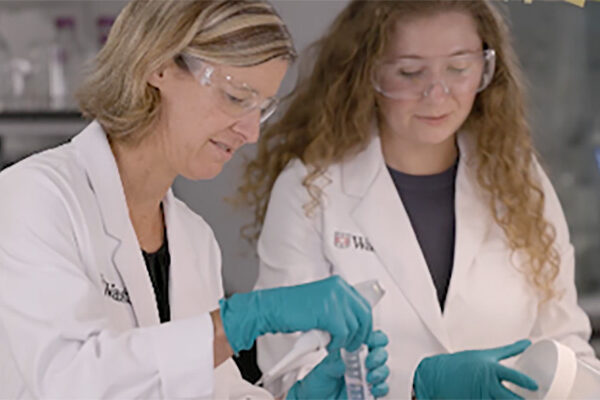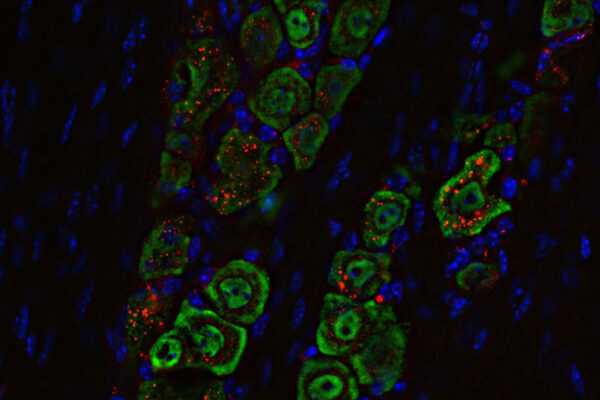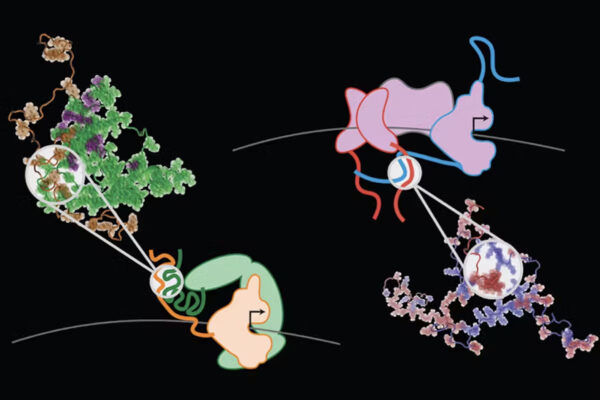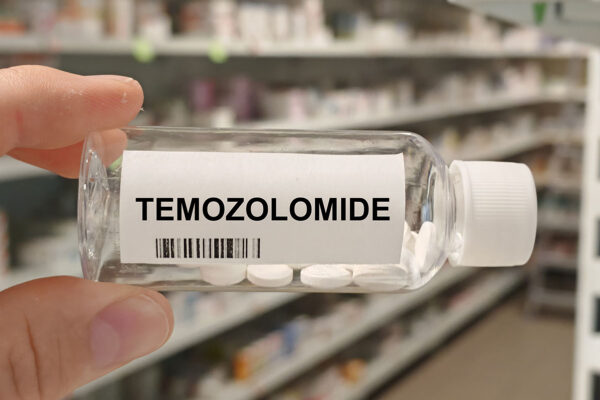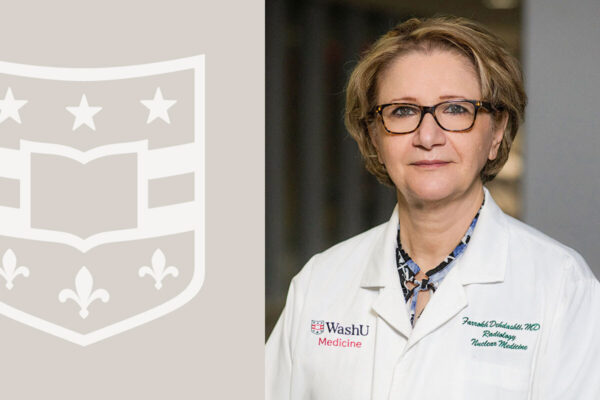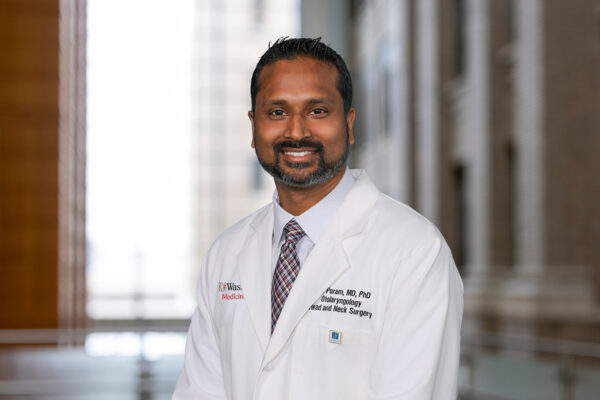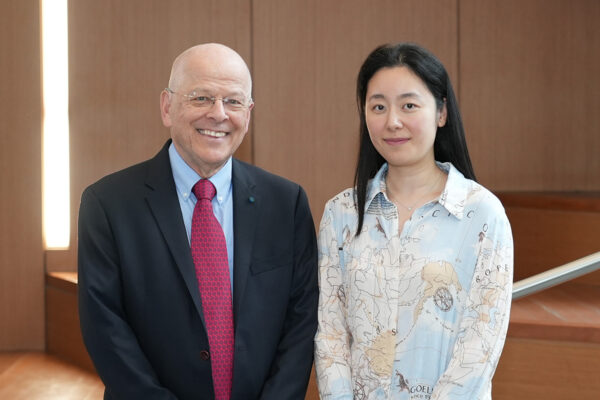Method spots early signs of infection after breast cancer reconstruction
A new tool developed by WashU Medicine researchers could allow for preemptive treatment of implant-related infections that improves outcomes and reduces patients’ emotional and financial burden.
Imaging technique can reduce benign breast biopsies by 25%
Ultrasound-guided diffuse optical tomography reduces breast biopsies by 25% in a new study from researchers at Washington University in St. Louis.
Inflammatory immune cells predict survival, relapse in multiple myeloma
Researchers at WashU Medicine and their collaborators have created an immune cell atlas of multiple myeloma, a cancer of the bone marrow. The new resource could improve prognosis and guide development of new immunotherapies.
A scientist’s ‘a-ha moment’
Alex Quillin, PhD ’25, talks about the day she looked through the microscope and realized what she and her fellow students discovered.
Nasal drops fight brain tumors noninvasively
Researchers at WashU Medicine have developed a nano-sized medicine delivered through the nose that boosts the anti-cancer immune response and successfully eliminates deadly brain tumors in mice.
Understanding intrinsically disordered protein regions and their roles in cancer
Researchers at Washington University in St. Louis have developed an algorithm to decode the language of intrinsically disordered regions of proteins and their roles in human cancers.
Timing may be key to effective cancer treatments
Researchers at Washington University in St. Louis found that the timing of biopsy can affect how doctors diagnose tumors and when those cancers may be more sensitive to chemotherapy.
Dehdashti honored by radiological society for outstanding research
Farrokh Dehdashti, MD, the Drs. Barry A. and Marilyn J. Siegel Professor of Radiology at WashU Medicine Mallinckrodt Institute of Radiology, has received the Radiological Society of North America’s 2025 Outstanding Researcher Award.
Puram named head of otolaryngology
Sidharth Puram, MD, PhD, a distinguished physician-scientist specializing in head and neck cancer surgery, has been named the head of the Department of Otolaryngology — Head & Neck Surgery at WashU Medicine.
Breast cancer startup founded by WashU Medicine researchers acquired by Lunit
Prognosia, a biotech startup that harnesses AI-driven software to analyze mammograms to improve breast cancer risk prediction, was created by Graham Colditz, MD, DrPH, and Shu (Joy) Jiang, PhD, both at WashU Medicine.
Older Stories
